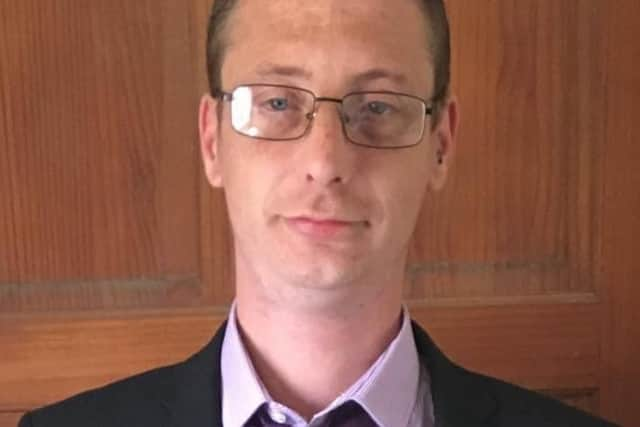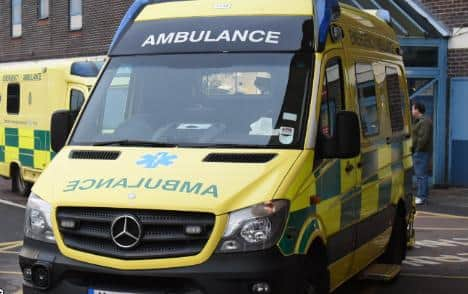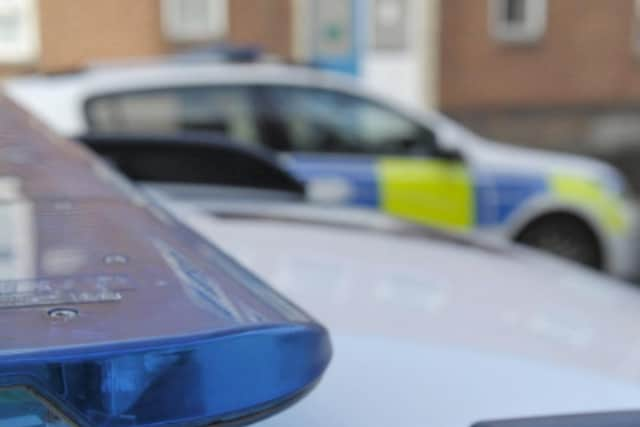Pleasant View, Cudworth: Anger after man found dead at Barnsley home after five hour wait for emergency services
and live on Freeview channel 276
Concerns were raised about the wellbeing of Ricki Gillatt on Saturday, May 20, after a relative was unable to get any response from him at his front door, several days after he had last been seen alive, says his ex, Mark Giles, who was still friends with him.
When emergency services arrived at the scene and finally got into his flat, Ricki, aged 36, who had suffered mental health problems, was found dead.
‘Right Care, Right Person’


Advertisement
Hide AdAdvertisement
Hide AdMark has spoken of his concerns on the day the Government has announced the NHS, police and government are committing to a new approach ‘to ensure those requiring urgent mental health support receive timely care from the most appropriate agency’, under a scheme they are calling Right Care, Right Person.
Police say their officers arriving for mental health calls can sometimes do more harm than good.
After Ricki’s worried brother called him, Mark called the police on 101, as there was no sign of life at the house, and he had not seen Ricki since May 11. He left a message for a call back from the police switchboard, which he received 80 minutes after he first rang.
He was then told by South Yorkshire Police that they were not the right organisation to call about welfare or missing persons – and he should call the NHS 111 number and request an ambulance to go to the address. If there was no reply, the ambulance crew would call the fire service to get into the house for them, he was told.


111 call for mental health
Advertisement
Hide AdAdvertisement
Hide AdHe said when he called 111, the operator was unaware of the arrangement, and then there was an assessment, which took 47 minutes. Eventually, he was transferred from 111 to ambulance control.
He said after ‘virtually begging’, they said they would send a crew to Ricki’s flat, at Pleasant View, Cudworth, which arrived an hour later. There was no answer, so the fire service was called. But when they got inside the building, Ricki was found dead.
The process has left Mark, a former Hertfordshire police officer who dealt with mental health calls during his police career, angry and worried for others. He said he cannot say if a quicker response could have saved Ricki, originally from Thorne, near Doncaster, and that would be a matter for an inquest to hear.


Now he is calling on police to reverse the policy of passing mental health calls to other organisations.
Advertisement
Hide AdAdvertisement
Hide AdHe said: “They were told of his mental health and physical disabilities by myself and a neighbour, but this whole so-called new policy eventually took over five hours from initial call and a lot of begging to finally get an emergency service to attend and find the body.
“Everyone I’ve spoken to can think of plenty of scenarios where this policy is wrong but not one scenario where it’s good, other than for the police service.
‘Police need to go back to old process’
“The police need to go back to the old process, instead of making it take over four hours to get any help – and that was hard enough to do anyhow.”
South Yorkshire Police assistant chief constable Dan Thorpe said protecting vulnerable people and keeping people safe had always been, and remained, top priority, and a programme called ‘Right Care Right Person’ had been brought in to ensure the most suitable intervention to vulnerable members of the public who may require specialist support, was provided by the most appropriate service. He said by continuing to work with their partners, vulnerable and at-risk people got the right support they need at the time they need it.
Police have ‘limited training on mental and ill health’
Advertisement
Hide AdAdvertisement
Hide AdHe said: “The skills and support people need in relation to concerns for welfare or mental health related incidents, are often not those of a police officer. Being dealt with by a police officer can potentially have a detrimental impact on vulnerable people, who feel like they are being criminalised because of their mental ill-health. Officers have limited training on mental and ill health and have limited powers to intervene with people in their own home.
“Training has been taking place within the force regarding our call handlers and dispatch staff in the Force Control Room so they can confidently make decisions on those incidents our officers should be attending and those which are best-placed to be attended by other agencies. We continue to spend a lot of time liaising and working with partners, such as those in health and social care, to ensure the right service is provided to vulnerable people in a timely manner, by the right agency to best meet their needs.
“We are committed to ensuring we protect the most vulnerable members of our community by giving them the most appropriate support.”
24/7 mental health crisis phone lines
The Government says work is under way to provide 24/7 mental health crisis phone lines.
Advertisement
Hide AdAdvertisement
Hide AdNHS England’s National Mental Health Director, Claire Murdoch, said: “It is vital that people experiencing a mental health crisis are given appropriate support and the NHS is committed to working with local police forces and their partners to ensure the right professional responds. Health services and police forces should use this agreement to develop protocols that best meet the needs of their local population, including seeking the views of patients, alongside assessing the additional resources they will need to deliver this.
“If you or someone you know is struggling with your mental health, the NHS has crisis helplines available 24/7, so please come forward.”
